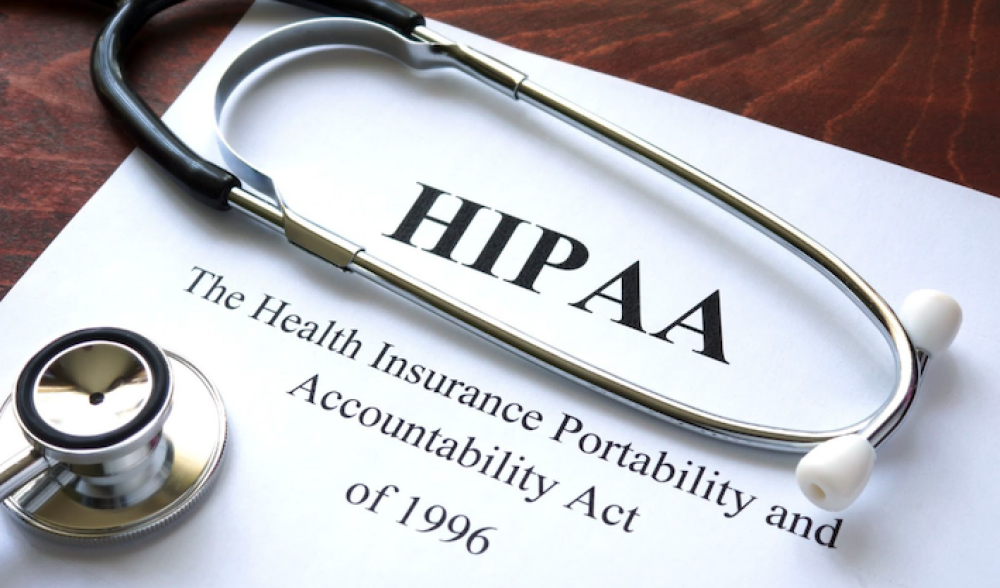Why HIPAA Compliance Is Essential for Home Health Agencies
Asha Neil

Keep reading to discover what the Health Insurance Portability and Accountability Act (HIPAA) means for your home health care business, along with the non-compliance pitfalls to watch out for.
Understanding HIPAA Compliance: What Are Your Obligations?
Issued by the U.S. Department of Health and Human Services Office for Civil Rights, HIPAA dictates how patient health information is treated. It can be divided into two parts: the HIPAA Privacy Rule and the HIPAA Security Rule.
As the name suggests, the Privacy Rule is a set of patient privacy regulations. In other words, it focuses on patients' rights to have their identifiable medical information kept confidential.
A key concept under this rule is the Minimum Necessary Standard, i.e. when releasing information, it should be on a strictly need-to-know basis. No more patient information should be shared or accessed than the minimum required to provide the contracted health care services.
The Security Rule, on the other hand, concerns itself with how patients' electronic protected health information is stored and accessed with the goal of avoiding data leaks or breaches. It outlines the administrative, technical and physical safeguards that you should take to avoid regulatory issues.
Both HIPAA “covered entities” — healthcare providers — and their business associates are required to have a HIPAA Compliance Officer. This can either be an internal member of staff or a contracted HIPAA Privacy Officer who will monitor the organization’s processes and security measures to ensure compliance.
Want to know more about your responsibilities? Read our guide to HIPAA compliance for home health care providers.
What Are the Consequences of HIPAA Violations?
HIPAA violations come with severe consequences, ranging from fines to prison sentences. The size of the fine will, however, depend on the type of violation. Let’s break this down.
Non-compliance can be split into two types: civil (non-criminal) and criminal violations. Non-criminal violations are further split into four categories. These are based on the extent of the providers’ attempt to avoid or resolve the issue, not the impact on the victim.
Category 1: Lack of knowledge — fines of $127–$63,973 per violation
Category 2: Reasonable cause for non-compliance — fines of $1,280–$63,973 per violation
Category 3: Willful neglect — fines of $12,794–$63,973 per violation
Category 4: Willful neglect with no attempt to correct the violation within 30 days — fines of $63,973–$1,919,173 per violation
All these categories carry a maximum annual limit of $1,919,173. Fines are also updated annually based on inflation.
As you might imagine, criminal violations come with serious criminal penalties. Any health care provider or business associate will face a hefty fine along with a prison sentence of up to 10 years, depending on the intent behind the violation. Criminal violations are split into three tiers:
Tier 1: Wrongful disclosure of protected health information (PHI) — Up to one year in prison
Tier 2: Wrongful disclosure of PHI under false pretenses — Up to five years in prison
Tier 3: Wrongful disclosure of PHI under false pretenses with malicious intent — Up to ten years in prison
The Challenges of HIPAA Compliance for Home Health Agencies
HIPAA regulations pose unique challenges for home healthcare providers who handle enormous amounts of private health information. These include:
Accessing Information Off-Site
In order to provide quality care during home visits, your team needs access to patient records on the go. This poses a challenge: how can private health information remain private, if it can be viewed anywhere? And how can you ensure that only approved staff members access information, if you can’t monitor who’s in the room at the time of access?
Staff training is essential so that team members know not to access patient health information in public settings. Your document management system should also come with rigorous privacy and security settings.
Insecure Devices
Picture this: a home health aide’s personal phone is accessed by their family members to view a recent photo. In doing so, these family members gain access to a patient’s mental health information. That patient’s privacy is violated.
It’s easy to control the security of your on-site computers. For home visits, however, your team will likely need to access private health information via their mobile devices. A lost, stolen or hacked cellphone can lead to a major security risk. Your system should account for this by ensuring that files are not downloadable. Ideally, they will only be accessible via a secure, password-protected app.
Reliance on Casual Labor
Home health agencies often have high turnover levels leading them to rely on casual labor. This can result in a lack of adequate training among agency staff, in addition to the need to frequently update worker access to your online systems.
This poses a data security risk. New team members may not handle private health information appropriately, while agencies may forget to ensure departing employees can’t view any confidential information. Good, frequent training and updated procedures are essential.
Avoid HIPAA Violations with Tools Designed for Home Health Agencies
The right tools will help home healthcare providers like yourself maintain compliance with the Health Insurance Portability and Accountability Act (HIPAA). They'll support you by ensuring that protected health information can be securely stored and shared, with access only provided for approved staff on a need-to-know basis.
ShiftCare's home care software is a HIPAA-compliant platform designed around the needs of home health care agencies. With ShiftCare, you’ll be able to quickly and efficiently onboard clients, schedule staff, manage patient health information and more. Not only will it help you comply with HIPAA and labor regulations, but it can help you free up hours of extra time by simplifying your admin tasks.
Discover how easy HIPAA compliance can be. Try ShiftCare for free.
 us
us


